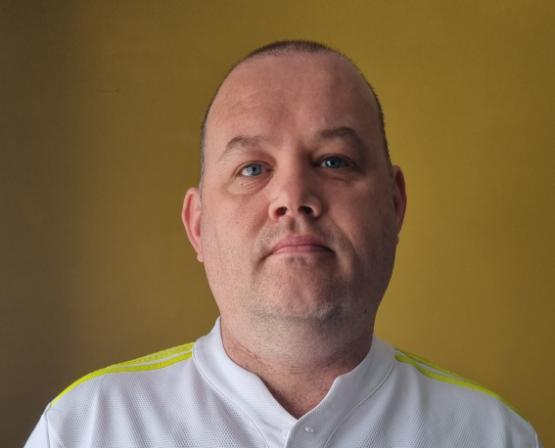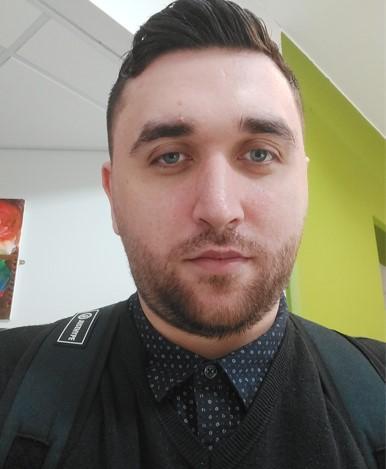Why we need more diversity (including more men) in nursing

The head of Nursing and Healthcare at the University of Bradford has called for greater diversity in nursing.
Professor Emmanuel Idowu, Head of School of Nursing & Healthcare in the Faculty of Health Studies, said he would like to see more graduates from diverse social and cultural backgrounds… and more male nurses.
Nursing is one of the most gender-segregated jobs in the UK - according to the latest figures from the Nursing and Midwifery Council*, of the 693,000 registered nurses in the UK, just over 80,500 people are men (roughly just over 11%).
At present, all nursing students get a minimum of £5,000 (and possibly up to £8,000) towards annual fees.
Professor Idowu, (pictured top) who spent 30 years as a nurse in the NHS, working in a variety of roles, from working on the wards to senior management, said now was the right time to change long-entrenched views about nursing.
His comments co-incide with International Nurses Day on May 12.
“We know that traditionally nursing has been seen mainly as a female profession but this is something we want to change. We also know that the recent pandemic has highlighted the significant role nurses play in our community. What we are trying to do is to make the nursing profession more representative of the community it serves.
“This is about giving people choice, and adding value to that choice. For example, we would like to see more BAME applicants to better reflect the community they serve. We would also like to see more men coming into nursing. This is a dramatically under-represented group, but it is important to have men in nursing, for the simple reason that, sometimes if you have male patients, they might want to be treated by a man.”
We spoke to THREE male nurses from the University of Bradford about why they chose nursing. Read their stories below.

Chris Smith, 40, a father-of-three, (pictured above) worked as a cook for 20 years and only decided to take up nursing during the pandemic.
He said: “When we went into lockdown the place I worked at closed down. I thought hard about it and realised I had always wanted to do care and nursing, I like to feel as though I’ve made a difference. I took a job in a care home and quickly made it up to acting senior, then did an access course at college to get the points needed to come to University.
“Part of the motivation is about helping people and in a way that’s why I think we do need more men in nursing, because if you’re a man and you have an embarrassing problem, I think men often talk to men differently than they do to women.
“There’s a big drive at the moment to get men to open up more, to improve their mental health, because traditionally men tend to keep their problems bottled up, so I think from that perspective, getting more men into nursing is about providing a choice.
“I think it has been perceived as a female job but men can get as much gratification out of it as women.”

Lucky Dube, 28, originally from Zimbabwe, (pictured above) who has previously worked as a support worker, is in his first year of a mental health nursing course.
He said: “I have a passion for this, it’s something that’s coming from my heart. I would always encourage more men to come into nursing. Firstly, there is a shortage of nurses in general in the UK, and I think nursing is something that’s so precious.
“The other poing to make is that society has changed, so I think we do need more men in the profession, so there is a good balance and that’s important in terms of providing the best care possible.”

Stefan Maftei, 26, originally from Romania, (pictured above) already has a degree in business and information communication technology, and is in his second year of a four-year mental health/adult nursing course.
He said: “I wanted a change, I wanted a challenge. Nursing is something that’s way different from anything I’ve done before, the course itself is very challenging. Nursing is about care, and providing a better service for people - that’s what I’m interested in.
“If we’re talking about mental health, obviously there are male and female patients, so I think it will sometimes be easier for men to talk to men about certain things and being able to provide that service also comes down to preserving the dignity of the patient.
“I think historically there has been a belief that women are better suited to care but I think if you go into the profession with an open mind and wanting to provide the best care possible, it’s a profession that suits both men and women.”
Why choose nursing?
University of Bradford nursing courses are accredited by the Nursing and Midwifery Council and offer excellent job opportunities across a wide range of sectors.
From September 2020, UK/EU students at English universities will receive up to £8,000 with a minimum of £5,000 a year in funding.
The three-year full-time degree in Nursing leads to a professional nursing qualification and eligibility to register with the Nursing and Midwifery Council.
This is a practical, patient-centred course with equal amounts of theory and clinical practice which enables students to experience different aspects of healthcare.
Spanning the rural Yorkshire Dales to inner city districts, no other area of the UK offers the rich diversity of clinical experience available through the University and its partner Trusts.
* Stats taken from Nursing & Midwifery Council report April-Sept 2021: https://www.nmc.org.uk/globalassets/sitedocuments/data-reports/september-2021/nmc-register-september-2021-easyread.pdf
